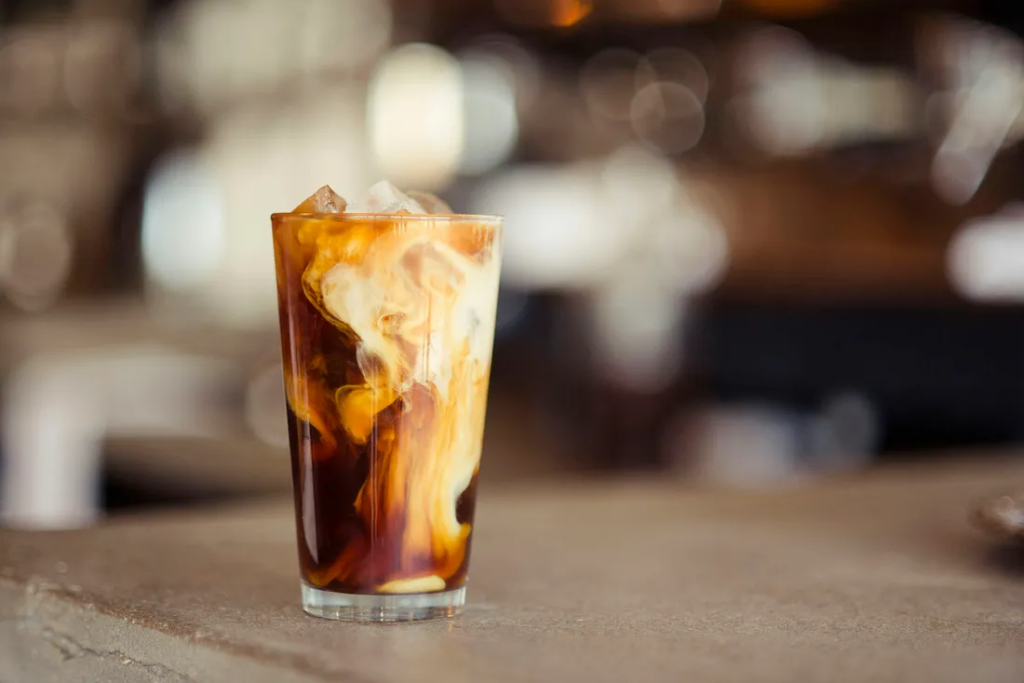
Let me tell you a little secret.
I used to be the kind of person who wouldn’t dare start a conversation before my morning cup of coffee. The mere thought of it made me feel human, almost magical, like I had my own personal spark in a mug. It wasn’t just the taste or the ritual — it was like a hug in a cup, grounding me in the chaotic morning hours.
But recently, I (and many others) have started stepping back from coffee. And guess what? It’s not because we’ve fallen out of love with its rich, roasted warmth. Something else is brewing in our minds, and it might just surprise you.
From Coffee Aficionados to Health-Conscious Seekers
For decades, coffee has been a universal symbol of energy, creativity, and comfort. When we held that mug, we felt like a part of something bigger, connected to every other person in the world who also couldn’t imagine mornings without their cup of joe.
But now, a wave of mindful health consciousness has swept over us.
It’s almost like we’re waking up to a collective understanding of our bodies, our minds, and how the two intertwine.
People are starting to question things beyond the superficial perks of coffee, taking a closer look at its effects on anxiety, digestion, and — surprise, surprise — our sleep cycles.
Ever notice how coffee promises productivity and focus, yet sometimes delivers a rollercoaster of highs and lows? That 3 p.m. crash isn’t exactly fun, nor is the occasional jolt of caffeine anxiety.
This shift isn’t about demonizing coffee, though. It’s about realizing that, for all its wonders, coffee may not be the miracle drink we once thought it was.
A Personal Story
I still remember the first time I tried to cut back on coffee, convinced that switching to one cup a day would be no big deal.
Spoiler alert: it was brutal. The withdrawals, the brain fog — it was like my body was going through an existential crisis. But over time, I realized something pretty remarkable: my body and mind started to recalibrate.
The jittery baseline that coffee had created slowly dissipated, and in its place, I felt a genuine, steady kind of alertness.
You’ve probably heard the phrase, “Everything in moderation,” and for some people, this rings truer with coffee than ever. People are craving less dependency on substances and more self-reliance, even if it means a few rough mornings.
It’s about finding energy that doesn’t come with a price tag of highs and lows, of jittery afternoons and restless nights.
Is It Coffee or the Café We Love?
Here’s a curveball for you: maybe it’s not just the coffee we’re attached to but the spaces where we drink it. Cafés have become our “third place” — a haven outside work and home where we can escape, people-watch, or even tap away on our laptops as we sip our beloved brews.
Many people are realizing they don’t need the caffeine itself to enjoy that atmosphere; it’s the setting that truly fills their cup.
Some former coffee drinkers are switching to alternatives like herbal teas, matcha, or even just sparkling water, and still finding solace in that café chair by the window.
They’re ditching the dependency on caffeine while keeping the ritual alive. It’s as if we’re asking ourselves: is it really the coffee we love, or is it the pause, the permission to slow down, that keeps us coming back?
Saving the World, One Cup at a Time
If you’re a conscious consumer, there’s another reason you might be rethinking coffee. The environmental impact of coffee farming has become an undeniable reality. From water-intensive farming practices to the carbon footprint associated with transporting beans across the globe, coffee production is a strain on our planet.
And for those who live by the “reduce, reuse, recycle” mantra, the choice to skip their usual cappuccino aligns with a broader commitment to sustainability.
One small decision, like replacing your coffee with a more eco-friendly option, can make a real difference. Imagine if we all cut down just a little. We’re talking big-picture effects, but also a powerful sense of doing right by the planet. And let’s be real — sometimes that feels even better than that morning buzz.
Coffee Isn’t Canceled — It’s Evolving
It’s essential to note that coffee isn’t going anywhere. In fact, for some, it’s a lifelong companion that brings comfort, energy, and even a sense of identity. But the way we think about coffee is definitely changing.
More people are choosing when and why they drink coffee, rather than downing it out of habit or social pressure. They’re considering alternatives not just for physical health reasons but for mental clarity, environmental impact, and emotional well-being.
It’s as if we’re waking up to the idea that coffee isn’t the end-all, be-all solution to our everyday struggles. It’s great — but maybe, just maybe, it’s not essential.
A More Mindful Cup
As we step into a new era of coffee culture, it’s becoming clear that it’s about quality over quantity, experience over dependency. People want a coffee experience that fits their lifestyle, their values, and their health goals.
So whether you’re a die-hard espresso lover or a curious tea convert, know that there’s no right or wrong answer here. It’s all about finding what feels good.
And hey, for those of us who still crave the occasional mocha latte? No shame in that game. After all, coffee isn’t just a drink — it’s a story, an experience, a small piece of our day that, for so long, has connected us all. And maybe now, in this era of mindful choices, that connection is only deepening.
So, here’s to coffee, in all its glorious forms — whether in our cups or simply in our memories. May we sip (or skip) it in ways that truly serve us. Cheers to a new, more thoughtful chapter in our caffeinated lives.









